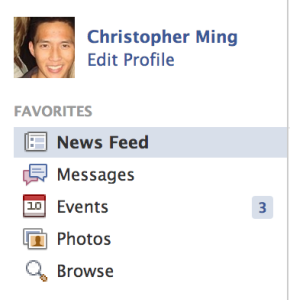I wrote about the Use of Feedback to calibrate my work. Today I wanted to write about Barriers. I define a barrier as a tool or technique that prevents distraction.
I remember in college, I had friends who complained about being unable to study. They said they couldn’t focus. They became web doctors and self-diagnosed themselves with ADD or dyslexia, not taking into account their study environment. Nothing about their environments were conducive to studying: it was a dorm room where either someone was playing a videogame, or the television was tuned into the latest rerun of NEXT TOP MODEL.
The answer seemed ridiculously simple: turn that shit off! Right? Wasn’t it easy?
The Nonstop News Feed Of Our Lives
The more I thought about it, though, the more I realized it wasn’t so simple. What I realized is these were all intelligent people, and if the solution were a simple “off” switch, they’d have done it already. But our default environment today is one of non-stop stimuli and instant gratification:
- Email – we know the message is transmitted and hits their inbox instantaneously. So we expect a prompt response in return.
- Information – any morsel of information is available on the Internets, and access is nearly ubiquitous, across any number of platforms (computer, phone, tablet) so if we want to know something (e.g., how far is the earth from the sun?; what was Coriolanus’s mother’s name?) we expect to find out right away. Information retrieval is an exercise in instant gratification.
- Text – as long as they have their cell phone on them (which most of us do) we know they’ve received the message right away. So if we asked them a question, we expect a prompt response.

We’re conditioned to life’s nonstop news feed, which has restricted our ability to shut down. I believe this ability is a muscle, and like any muscle, it needs to be developed. It is a skill we must acquire. The idea that’s it’s worthwhile to develop this muscle, has been made so clear as I study people I admire and see what they’ve accomplished in short amounts of time. A shortlist: Ted Melfi, Charlie Hoehn, Jeff Bezos.
There’s so much to accomplish, but getting through the task at hand requires a high level distraction-free focus. You’d think this requires great will power, but it doesn’t. It requires taking will power out of the equation. Thus, the objective changes: don’t fight distractions, but pre-empt them. Will power has no say in the conversation. Which is done through Barriers.
My Barriers
Here’s a list of barriers I use to make distraction a non-issue. I didn’t implement these all at one time. (That’s akin to telling my friend (above) that in order to study better, they need to change all their habits. Or “just focus harder.” It doesn’t work.) These barriers developed over years, one at a time. They keep me focused despite the new feed of our lives:
- Don’t push e-mail – I’m probably a rarity for Hollywood assistants who don’t push e-mail (e.g., get a notification when I receive new e-mail. Many claim this isn’t an option for them. I sympathize. It must be utterly demoralizing to receive pings on your phone at any point in the day. I have the good fortune of working for agents who understand there are two choices: you can either respond to every ping, or you can get to work. They prefer the latter, as do I.
- No TV – When I visit my family, the TV is always on. I’ll walk by and see ENTOURAGE or THE SHAWSHANK REDEMPTION is on, and I’ve basically forfeited an hour of my life. Because I don’t have the willpower not to watch.
- Freedom and LeechBlock – Browser tools that prevent you from using the Internet.
- I carve out time to be alone – Mostly in the morning. When it’s still dark out, after I’ve eaten something and hours before I let myself check e-mail.
- No music – Which is a complete 180 degrees turn for me. I once required blaring music to tune everything out. Until I noticed it was tuning out my own thoughts.
- TK’s – I write every time I come across something I need to research or look up. Rather than lose my flow, I write TK (which stands for “to come”). I’ll return and fill in later.
- Phone is off
I compare the time when I can put all my barriers to use, versus the time I spend in the office, and all my lines are ringing and I have to jump from executive to executive to executive and schedule all their meetings. So much more gets done without the distractions.
What barriers do you use?
Photo Credit: Huw Gibbs
